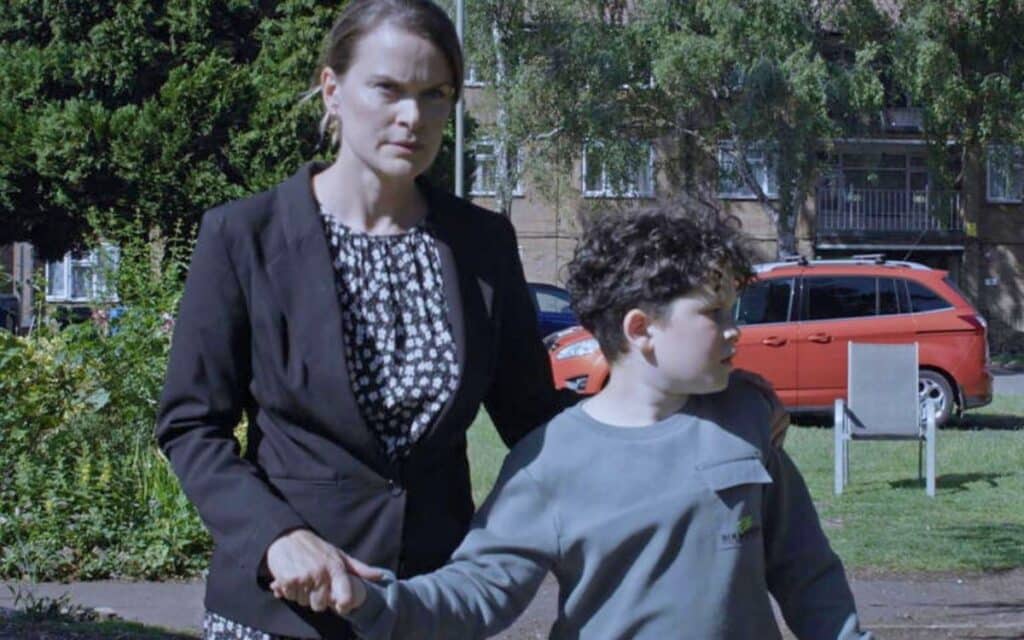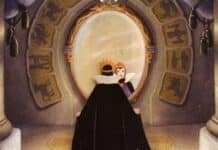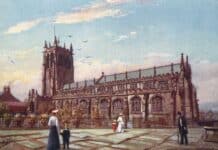When Evil Came To Rochdale is a Channel 5 crime documentary looking at the Satanic Panic of the 1980s. GEMMA JOHNSON says the case bears a disturbing resemblance to witch hunts from the 17th century

“Witch!” is an accusation that would send shivers down the spine of anyone during the era of witch trials that took place in England, between the 15th and 18th centuries.
The most famous being the trials of the Pendle Witches in 1612 resulting in the execution of 10 people.
Pendle Hill sits in Lancashire in the Northwest of England, less than an hour away from Rochdale, a place that was not immune to the wrath of the witchfinders during that dark era of history.
As time progressed, there was a significant shift away from the belief that witchcraft was real, the most significant evidence of this was the implementation of The Witchcraft Act 1735.
The new act assumed that magic, Satan and witches were not real but were instead acts of cheaters who were trying to extort money from vulnerable people.
So why, some 250 years after The Witchcraft Act 1735, had accusations started to resurface? Had we learnt nothing? It really seems that we hadn’t.
When Evil Came To Rochdale
A social worker flanked by two police officers knocks on the door of a humble house in the middle of a council estate in Rochdale.
It is March 1990, and this will be the first family of many that will find themselves embroiled in a confusing nightmare fuelled by conspiracy and rumour. Four children were removed from the house, the reason given to parents “we believe that you are witches”.
I am teacher and so I understand the need to act upon potential concerns that may indicate a child is at risk of harm but with this comes the need for sensitive, logical and rational exploration – something that was clearly lacking here.
There were no prior conversations with parents, no connecting with other authorities or professionals that could help support the investigation process and most significantly, a lack of thorough documentation of the ‘evidence’.
Instead, the same leading questioning, lack of opportunities for defence and blurring of the facts that were present in the witch trials of old.
Having been ripped away from their home, and their families, the children are then subjected to repeated interviews. The information ‘extracted’ from the interviews leads to more dawn raids taking place and resulting in a further 12 children being taken away from their families based upon accusations of witchcraft and Satanism.
Moral panic was the cause of the witchtrials in England, and subsequently those within Salem. Religion was central to life across England and Salem, anything perceived to threaten that was seen as a negative that needed to be stopped as a matter of urgency.
In the case of the 16th centuries and beyond, this ‘threat’ was anyone who was deviating from the religious norm. By not attending mainstream religious services it was thought that you couldn’t possibly be worshipping God and so there must be a darker element at play – witchcraft and Satanism.
Fast forward to the late 20th century and we find ourselves with another moral panic, one that started in America and rippled over the Atlantic to the United Kingdom. The cause? The increased popularity of heavy metal and the evolution of the goth trend creating a stereotype that anyone who immersed themselves in the culture aligned themselves with Satan, witchcraft and the occult.
The moral panic was so intensive that it led to conversations within parliament, child protective services drawing up plans for dealing with satanic based abuse and child psychologists readying themselves for an onslaught of traumatised children and young people.
Modern Day Witch Hunters
The Witchfinder general of the 17th Century was Matthew Hopkins who claimed to have been commissioned by parliament to uncover and manage the upsurge in witchcraft.
The 20th century equivalent here was Jean La Fontaine who was commission by parliament to conduct detailed research. But where Hopkins jumped to conclusions, Fontaine was much more methodical and rational.
In the 1990’s Fontaine found no evidence of the threat of Satanism, instead it was the social workers who, in Fontaine’s words “went on a crusade and these children were going to help them”. Moral panic and a fixation on Satanism resulted in unfounded accusations being made based upon preconceived ideas. Sounds familiar, doesn’t it?
What were the sources of these accusations? The first child to trigger a concern told a story about a ghost within the family home, the family had called in a priest to help them, and the ghost had left. He was 6 years old when he told the story at school recalling tales about what the ghost had done when it was in the house.
Social workers believed that the ‘ghost’ was actually a cover for Satanic Abuse, and it was the parents who were doing the scary things to him.
Back in the 17th Century, it was black animals that were seen to be covers for witchcraft, a witches familiar making themselves appear as an animal to help keep the occult practices hidden.
By all accounts, I would have been accused of being a witch as I sit here with my black labrador at my side as I write this. It seems ridiculous now we reflect upon it.
The formalities of the witchcraft trials of the 17th century, and beyond, were less than fair. In the 1990’s the cases connected with the Satanic Panic of Rochdale were investigated by the Police who found no evidence of crime, it was later thrown out of family court too so there is a blessing here but let’s look at this objectively…. The trauma was completely unnecessary and unjustified, just as it was back in the witch trials of old.
This all started with a child telling a story about a ghost and ended with many children being separated from their families for years.
When Evil Came to Rochdale is available on Channel 5 on Demand.
Have you seen When Evil Came to Rochdale? Tell us your thoughts on this documentary in the comments below!







